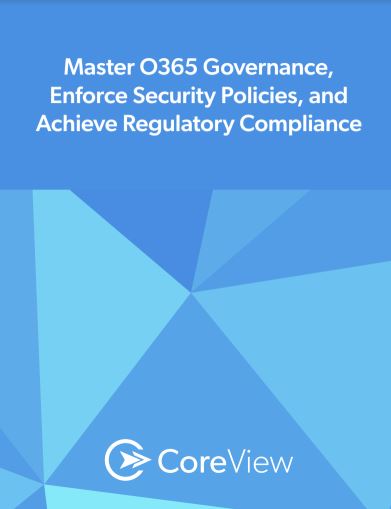Liberty defeated in ‘snooper’s charter’ legal challenge
High court rules the government’s Investigatory Powers Act doesn’t breach human rights


Ambitions to curb bulk data collection practices in the government's Investigatory Powers Act 2016 (IPA) have ended in defeat as judges ruled the bill doesn't infringe on human rights.
The UK-based human rights group Liberty has expressed its disappointment after the High Court quashed its legal challenge against what's commonly dubbed the 'snooper's charter'.
The group's challenge was based on the notion that the IPA violates citizens' right to privacy and freedom of expression as outlined by Article 8 and 10 of the European Convention on Human Rights (ECHR).
Lord Justice Singh and Mr Justice Holgate, however, dismissed the claim at the high court in London today, arguing there are appropriate safeguards in place to protect people against abuse of their fundamental rights.
"This disappointing judgment allows the government to continue to spy on every one of us, violating our rights to privacy and free expression," said Liberty lawyer Megan Goulding.
"We will challenge this judgment in the courts, and keep fighting for a targeted surveillance regime that respects our rights.
"These bulk surveillance powers allow the state to hoover up the messages, calls and web history of hordes of ordinary people who are not suspected of any wrong-doing.
Get the ITPro daily newsletter
Sign up today and you will receive a free copy of our Future Focus 2025 report - the leading guidance on AI, cybersecurity and other IT challenges as per 700+ senior executives
"The Court recognised the seriousness of MI5's unlawful handling of our data, which only emerged as a result of this litigation. The security services have shown that they cannot be trusted to keep our data safe and respect our rights."
Liberty and other human rights and privacy groups have been wrangled in a legal battle with the government over the IPA since its passage through parliament.
This fight has seen the group claim a handful of victories, including a successful challenge last year against the government's power to force communications and internet companies to store data on UK citizens.
Most recently, Liberty challenged the secrecy of the Investigatory Powers Tribunal (IPT), an independent body that judges whether GCHQ, MI5 and MI6 cyber activity remains within the scope of the law.
Previously, complaints received would lead to judgements being made in secret, but a 4-3 majority on the supreme court ruled these agencies' powers be open to judicial review, and openly challenged in court.

Keumars Afifi-Sabet is a writer and editor that specialises in public sector, cyber security, and cloud computing. He first joined ITPro as a staff writer in April 2018 and eventually became its Features Editor. Although a regular contributor to other tech sites in the past, these days you will find Keumars on LiveScience, where he runs its Technology section.
-
 Should AI PCs be part of your next hardware refresh?
Should AI PCs be part of your next hardware refresh?AI PCs are fast becoming a business staple and a surefire way to future-proof your business
By Bobby Hellard
-
 Westcon-Comstor and Vectra AI launch brace of new channel initiatives
Westcon-Comstor and Vectra AI launch brace of new channel initiativesNews Westcon-Comstor and Vectra AI have announced the launch of two new channel growth initiatives focused on the managed security service provider (MSSP) space and AWS Marketplace.
By Daniel Todd
-
 IBM: Data governance for data-driven organizations
IBM: Data governance for data-driven organizationswhitepaper Master your data management
By ITPro
-
 Google claims US government is too reliant on unsecure Microsoft products
Google claims US government is too reliant on unsecure Microsoft productsNews The tech giant suggested it might be time for the government to rethink its approach to procurement
By Zach Marzouk
-
 Over half of London councils lack cyber insurance
Over half of London councils lack cyber insuranceNews One council representative called the cyber insurance market “very challenging”
By Zach Marzouk
-
 New malware uses search engine ads to target pirate gamers
New malware uses search engine ads to target pirate gamersNews MosaicLoader uses advanced obfuscation techniques to avoid detection
By Danny Bradbury
-
 EU might force tech giants to share data with smaller rivals
EU might force tech giants to share data with smaller rivalsNews The Digital Services Act draft also suggests that firms may be banned from giving their own services preferential treatment
By Sabina Weston
-
 Master O365 governance, enforce security policies, and achieve regulatory compliance
Master O365 governance, enforce security policies, and achieve regulatory complianceWhitepaper Identify — and solve — security compliance pain points
By ITPro
-
 German housing giant fined £12.5m for GDPR violations
German housing giant fined £12.5m for GDPR violationsNews The firm’s archive system held onto highly sensitive data from bank statements to health insurance records
By Keumars Afifi-Sabet
-
 US big tech suffers as federal privacy bill delayed
US big tech suffers as federal privacy bill delayedNews Firms must comply with California's strict data laws in lieu of a federal bill
By Erin Paulson